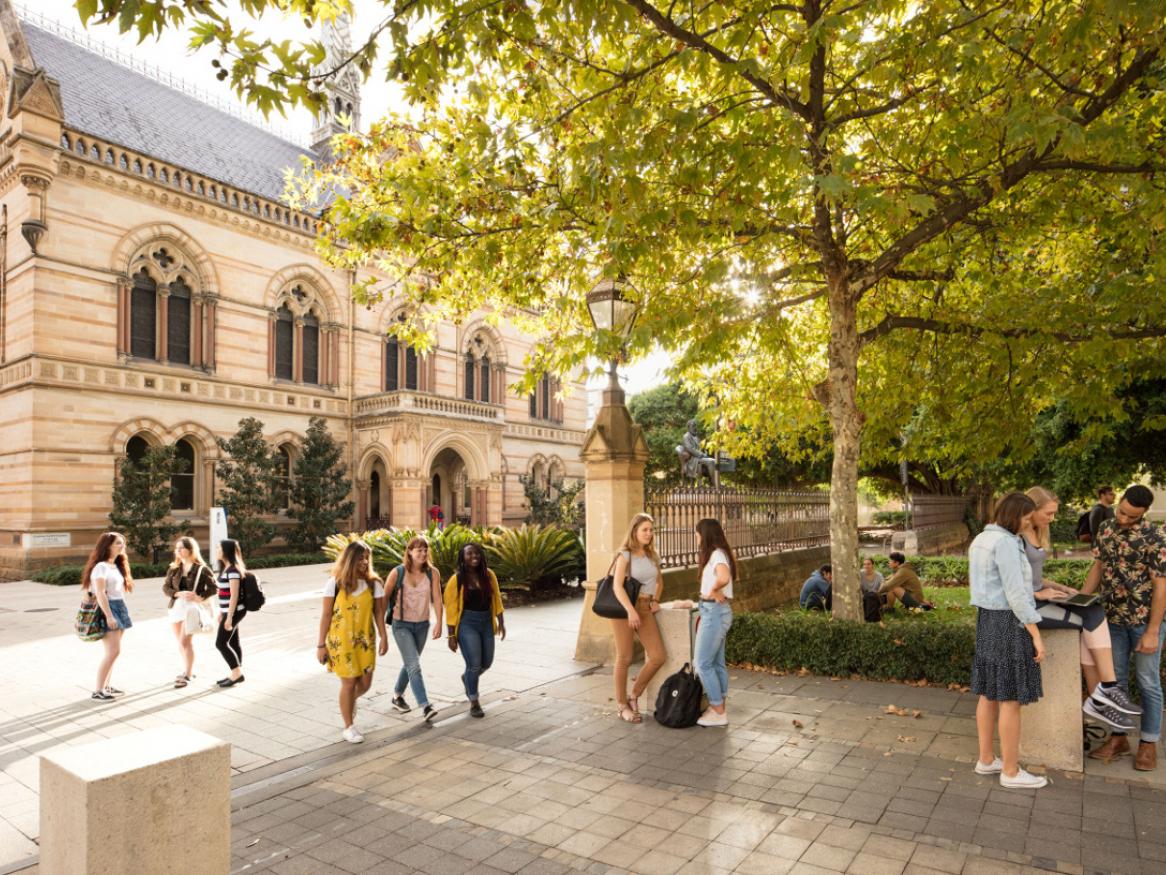Latest news
Search news stories
Enter a keyword to search news.
Adelaide uni leaders honoured for health research excellence

Three University of Adelaide researchers have been honoured in this year’s National Health and Medical Research Council (NHMRC) Research Excellence Awards for their work in reproductive health, cardiology, and medical ethics.
[Read more about Adelaide uni leaders honoured for health research excellence]
Queen’s Birthday Honours awarded to staff and alumni

More than 40 members of the University of Adelaide community have today been awarded Queen’s Birthday honours, recognising outstanding contributions to their fields of expertise.
[Read more about Queen’s Birthday Honours awarded to staff and alumni]
2021 Adelaide Festival of Ideas program launched

Reborn Festival of Ideas to shine brighter than ever with Stan Grant, Clementine Ford, Taryn Brumfitt, Costa Georgiadis, Gavin Wanganeen, Matt Stone and Ben Shewry.
[Read more about 2021 Adelaide Festival of Ideas program launched]
Flinders Ranges rocks reveal Earth’s secrets

The first virtual plate reconstruction of the Earth’s last billion years of geological history is providing deeper insight into what formed our planet and made it into how it is today.
[Read more about Flinders Ranges rocks reveal Earth’s secrets]
University of Adelaide among world’s top 1% in rankings

The University of Adelaide continues to be recognised as one of the world’s top universities, with today’s release of the 2022 QS World University Rankings.
[Read more about University of Adelaide among world’s top 1% in rankings]
Depression 50% higher in women with PCOS

Women diagnosed with Polycystic Ovary Syndrome (PCOS) are 1.5 times more likely to have symptoms of clinical depression than women without the condition, a new study from the University of Adelaide’s Robinson Research Institute has found. This was the case whether or not women knew they had PCOS.
Combatting child sex abuse: Research Tuesdays

Disturbingly, there is considerable evidence to suggest global demand for child sexual abuse material (CSAM) is growing.
[Read more about Combatting child sex abuse: Research Tuesdays]
Sea snakes show their sensitive side to court potential mates

Decades of research has revealed the remarkable morphological adaptations of sea snakes to aquatic life, which include paddle-shaped tails, salt-excreting glands, and the ability to breathe through their skin.
[Read more about Sea snakes show their sensitive side to court potential mates]
New insights into survival of ancient Western Desert peoples

Researchers at the University of Adelaide have used more than two decades of satellite-derived environmental data to form hypotheses about the possible foraging habitats of pre-contact Aboriginal peoples living in Australia’s Western Desert.
[Read more about New insights into survival of ancient Western Desert peoples]
Soft tissue measurements critical to hominid reconstruction

Accurate soft tissue measurements are critical when making reconstructions of human ancestors, a new study from the University of Adelaide and Arizona State University has found.
[Read more about Soft tissue measurements critical to hominid reconstruction]
